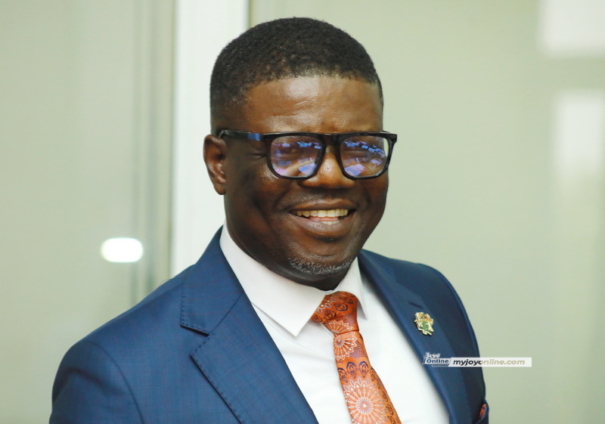The Majority Chief Whip, Rockson-Nelson Dafeamekpor, has vowed that Parliament will move swiftly to pass the much-anticipated Legal Education Bill.
He said the reforms will be undertaken “under a certificate of urgency” as part of a key political promise.
Speaking on PM Express on Joy News on Tuesday, May 27, the South Dayi MP said the bill is a culmination of a long struggle to overhaul the country’s legal education system.
“This bill was long in coming,” he said. “We waged this war from about 2018 when intake into the law school became acrimonious, contentious and eventually corrupted.”
According to Dafeamekpor, corruption plagued the admissions process into the Ghana School of Law. He cited findings of the General Legal Council’s own disciplinary committee as evidence of grave misconduct.
“Even persons who didn’t write the Law School entrance exams got admitted,” he claimed.
“I am not the one speaking—this is what the GLC’s disciplinary committee found. Eleven students. My own information suggests the number was over 33, but for the record, to minimise the impact, they said 11.”
He added, “What became the fate of those 11 students who were admitted back door? We are yet to know. But we shall uncover.”
The proposed Legal Education Bill aims to democratise access to legal training in Ghana.
“Let every faculty accredited to run the academic LLB programs be accredited or licensed to train their own lawyers,” Dafeamekpor said.
He explained that under the new system, faculties that currently offer academic LLBs would also be empowered to offer professional training.
“Already, the faculties are calling themselves law schools anyway,” he noted. “What becomes of a law school when you can’t train lawyers?”
The MP described a future where legal education is decentralised, the bar exam is conducted twice a year—once in January, once in June—and any accredited institution can prepare students for it.
“You pass the bar, you are called,” he stated. “The Ghana School of Law, sitting in Makola in Accra, will no longer have a monopoly. It will become just one of many schools that train lawyers. It will also have to compete.”
He clarified that professional training could last one to two years, depending on the course load and the student’s pace.
“If somebody is so focused, the person should be able to complete it in a year,” he said. “Because it’s practical courses.”
Mr Dafeamekpor also addressed a common misconception about the purpose of legal education.
“It’s not everybody who becomes a lawyer who wants to be a practitioner,” he said.
“There are more people called to the bar who are not in practice. They are into corporate law and other things—and we need them.”
He pointed to the lack of legal expertise in many public institutions as justification for wider access to legal training.
“You enter a lot of assemblies in this country, and you see we need lawyers, not necessarily practitioners but people with legal minds to guide you,” he said.
When host Evans Mensah asked when the bill would be passed, Dafeamekpor didn’t hesitate.
“Why not? I’m the Majority Chief Whip, and we are even minded to move this under a certificate of urgency,” he announced. “It is one of our major political promises—and we will deliver it.”
Latest Stories
-
Tems excited ahead of historic FIFA Club World Cup show
1 hour -
Some former appointees are providing information against their ex-colleagues – Dr Srem-Sai
1 hour -
NAPO is under investigation for mathematical sets procurement, other issues – Dep AG Srem Sai reveals
2 hours -
Dozens of ex-gov’t officials quietly answering for their tenure without fanfare – Dep AG Srem Sai
2 hours -
South African business confidence edges up in May after big drop in prior month
3 hours -
‘Plea bargaining is our game-changer’ – Dr Srem Sai declares new era in asset recovery
3 hours -
ORAL: Deputy AG Srem Sai backs plea bargaining to recover stolen wealth
3 hours -
Barrick Mining removes Mali gold complex from 2025 output forecast, sources say
4 hours -
Trump says rare earths deal ‘done’ with China
4 hours -
Tems to perform at 2025 FIFA Club World Cup
6 hours -
Nearly 50 people killed in South Africa floods
6 hours -
Kenya’s Ruto says blogger died at hands of police, shifting official account
6 hours -
Calm returns to Los Angeles after hundreds arrested
6 hours -
‘We’re working overnight, but we can’t publish everything’ – Deputy AG Srem Sai
6 hours -
ORAL process is not slow, its moving fast, Deputy AG Srem Sai tells Joy News
7 hours

